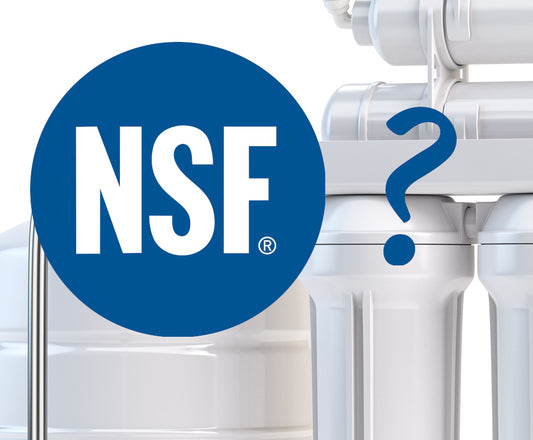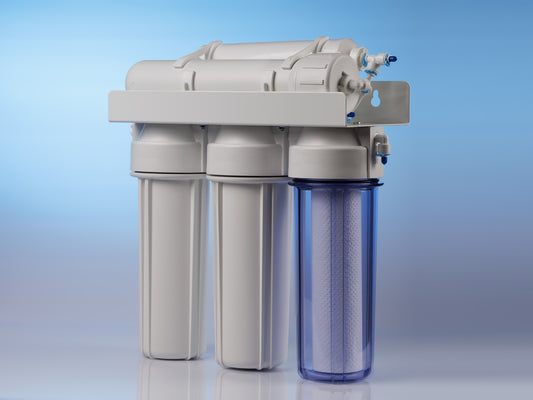Using a house water softener is a smart choice for numerous reasons, particularly for homeowners dealing with hard water. Test your water and learn why you should consider installing one:
1. Protects Plumbing and Appliances
Hard water contains high levels of calcium and magnesium, which can build up in pipes and appliances, leading to clogs and reduced efficiency. A water softener removes these minerals, prolonging the life of your plumbing systems and appliances like washing machines, dishwashers, and water heaters.
2. Enhances Water Quality
Softened water improves the overall quality of water in your home. It prevents the scale buildup that can leave residue on dishes and glassware, and it makes your water feel softer on your skin and hair during bathing, reducing dryness and irritation.
3. Reduces Soap and Detergent Use
Soft water lathers more easily than hard water, which means you can use less soap and detergent while achieving better cleaning results. This not only saves money but also reduces the environmental impact of your household's consumption of cleaning products.
4. Energy Efficiency
Appliances run more efficiently with soft water. Without the mineral build-up in the systems, appliances can heat water faster and maintain efficiency, leading to lower energy consumption and reduced utility bills.
5. Improved Health Benefits
While the health impacts of hard vs. soft water are generally considered neutral, soft water can indirectly benefit your skin and hair by preventing the drying effects of hard water, leading to softer skin and more manageable hair.
6. Cost Savings Over Time
The initial investment in a water softener can be offset by the long-term savings in appliance maintenance, reduced need for repairs, decreased use of soaps and detergents, and more efficient energy use.
Installing a house water softener is a forward-thinking decision that can improve daily life, enhance the performance of household systems, and provide ongoing cost savings.
Collection Of Water Softener Systems for Pure, Safe Water at Home
Why House Water Softening System?
Top Water Softening Companies
Popular Types of House Water Softening Systems
Exploring Popular Types of House Water Softening Systems
When it comes to selecting a water softening system for your home, understanding the different types available can help you make an informed decision. Each type of softener offers unique benefits and operates differently. Here's a closer look at some of the most popular types of house water softening systems:
1. Salt-Based Ion Exchange Softeners
This is the most common type of water softener, which functions through an ion exchange process where calcium and magnesium ions (that cause water hardness) are replaced with sodium ions. These systems include two tanks: one with special resin beads and another with brine. They are highly effective for extremely hard water and are known for their reliability and efficiency.
2. Salt-Free Water Softeners
Salt-free softeners use a potassium chloride salt substitute rather than sodium. Rather than removing hard minerals from the water, they neutralize these minerals so they don't form scale build-up. This type of softener is ideal for those who are concerned about salt intake and its environmental impact. It's also maintenance-free since it doesn’t require salt refills.
3. Dual-Tank Water Softeners
When continuous soft water is needed, dual-tank softeners provide an excellent solution. While one tank is in use, the other is regenerating, thus ensuring that soft water is available at all times. This system is particularly beneficial for large families or homes with high water usage.
4. Magnetic Water Softeners
This type involves the use of a magnetic field to alter the electromagnetic properties of calcium and magnesium ions so that they are less likely to stick to surfaces and form scale. Magnetic softeners are easy to install and offer a portable solution without the need for chemicals or salt.
5. Reverse Osmosis (RO) Systems
While not traditional softeners, RO systems are capable of reducing the hardness of water by removing a substantial portion of minerals and contaminants through a semi-permeable membrane. These systems are often used in conjunction with other types of water softeners for achieving high-quality drinking water.
6. Template Assisted Crystallization (TAC) Softeners
TAC softeners are a type of salt-free system that converts hardness-causing minerals into harmless, crystal-like particles. These crystals stay suspended in the water and are unable to attach to surfaces, effectively preventing scale. TAC softeners are environmentally friendly and require no electricity or salt.
Choosing the Right System
Selecting the right water softening system depends on several factors, including the hardness level of your water, household water usage, environmental concerns, and budget. By understanding the different types and how they operate, you can choose a system that best fits your needs and ensures a long-term solution for managing hard water in your home.















